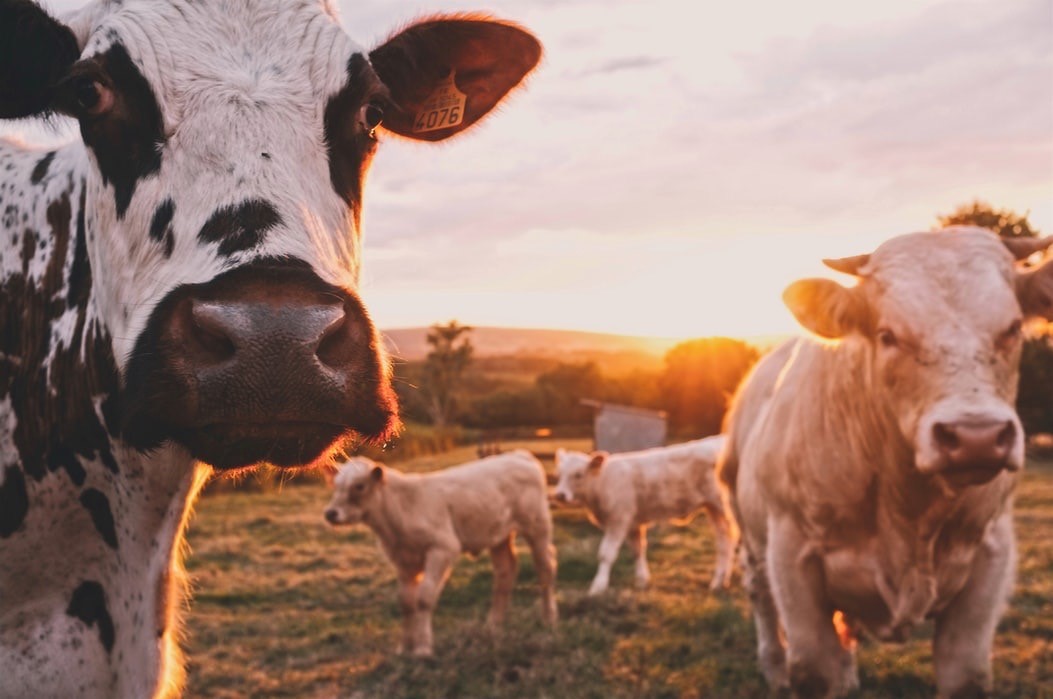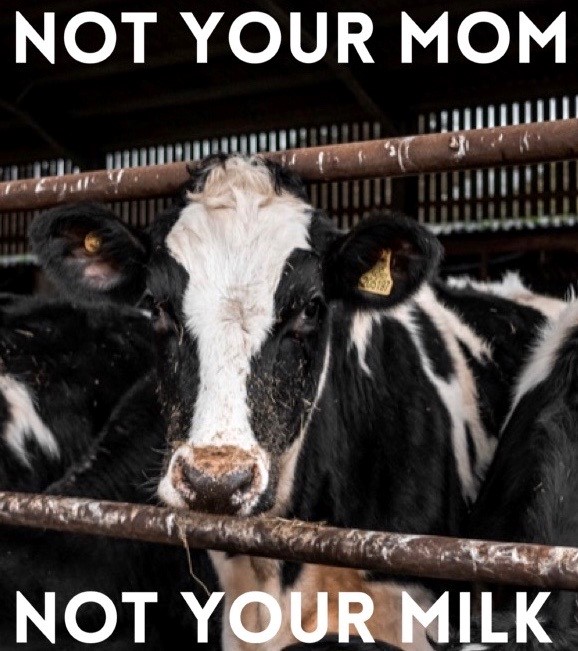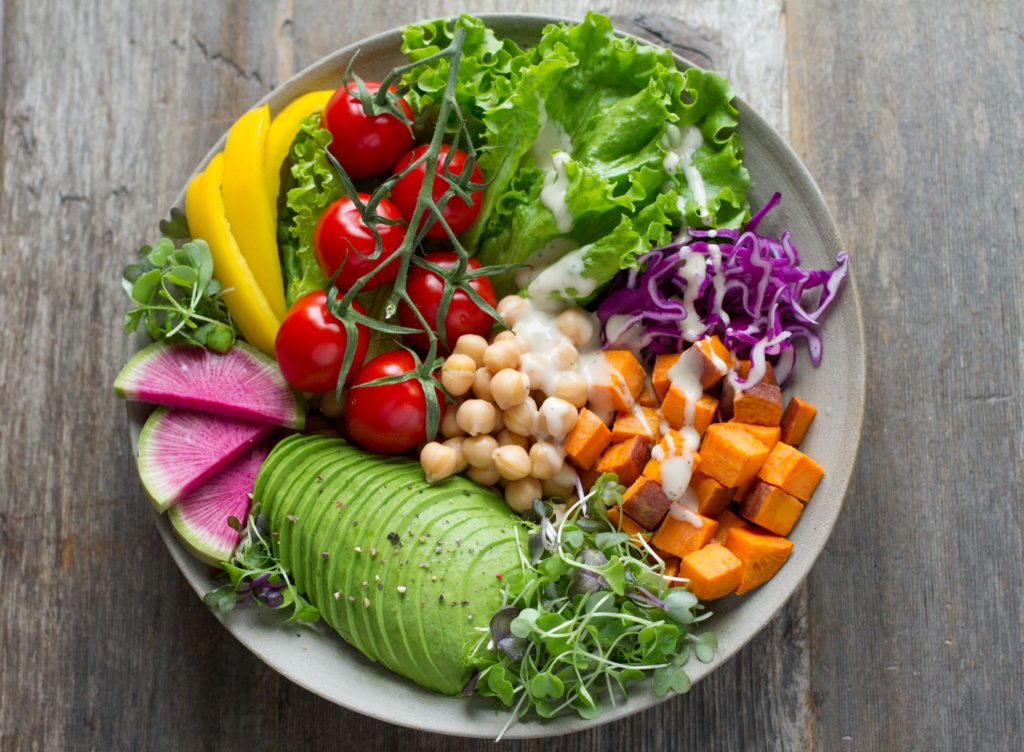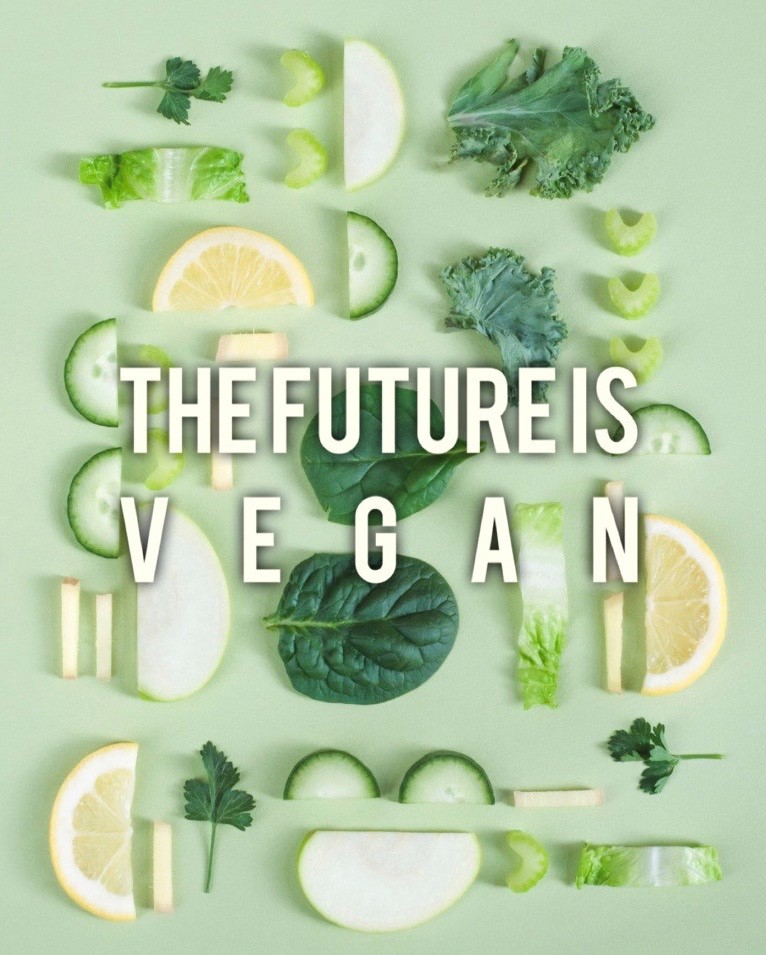WHY YOU SHOULD EAT MORE PLANTS (AND DEFINITELY LESS BEEF)
Welcome to my first blog post! What better way to thank you for checking out my blog than by telling you the single biggest way to reduce your impact on the environment?
And it isn’t to swear off driving, heating and cooling your home, or electricity. No need to invest in a horse and buggy or make a run on candelabras!
According to experts, the single biggest way to reduce your impact on the planet is to avoid consuming animal-derived foods (i.e., food derived from animals, including meat, fish, dairy, and eggs) and instead adopt a plant-based or vegan diet (i.e., a diet that excludes animal-derived foods in favor of plants like fruits, vegetables, grains, legumes, nuts, and seeds).
This single change is so effective because the animal agriculture industry that produces the animal products we consume is horrendous for the environment in just about every way you can imagine:
It emits a significant percentage of the greenhouse gases that cause climate change: For various reasons, it is difficult to precisely quantify the greenhouse gas emissions of animal agriculture. However, every study I’ve reviewed finds a clear emissions hierarchy among the foods we eat, with animal-derived food, and particularly beef, having far and away the highest emissions. According to one recent and particularly comprehensive study, while meat, aquaculture, eggs, and dairy provide just 18% of our calories and 37% of our protein, they are responsible for 56-58% of greenhouse gas emissions associated with the production of our food. Another study found that the top three meat companies—JBS, Cargill, and Tyson—emitted more greenhouse gases in 2016 than all of France, and nearly as much as some of the big fossil fuel companies like Exxon, BP, and Shell.
It is a key contributor to deforestation and biodiversity loss: Meat, aquaculture, eggs, and dairy farming use a whopping 83% of the world’s farmland. If people stopped consuming these products, and instead got all their calories from plant-based foods, global farmland could be reduced by a jaw-dropping 76%—an area over four times the size of the US. Cattle ranching is the largest driver of deforestation in the Amazon rainforest, accounting for 80% of current deforestation rates.
It depletes our freshwater reserves: About one-third of the world’s water consumption is for producing animal-derived food. Just one hamburger requires 660 gallons of water to produce—the equivalent of over a month’s worth of showers. By contrast, one apple requires 18 gallons of water to produce. Studies have shown that the food-related water footprint of a consumer in an industrialized country like the US can be reduced by 36% by shifting from an average meat-based diet to a vegetarian diet.
It pollutes our water: According to the US Department of Agriculture, 335 million tons of animal manure is produced annually by farmed animals in the US, much of which makes its way into our rivers, lakes, and streams via something I wish I’d never read about called “manure lagoons.” And manure is only part of the problem; a variety of other pollutants, including nutrients from animal feed, agrochemicals, drug residues, hormones, and feed additives, go along with it, tainting our water supply.
It pollutes the air: Emissions from farms outweigh all other human sources of fine-particulate air pollution in much of the US, Europe, Russia, and China. Industrial animal farming concentrates airborne agricultural pollutants such as methane, nitrous oxide, ammonia, and hydrogen sulfide, sickening farm workers and those in surrounding communities. According to a 2015 study, fine-particulate air pollution leads to 3.3 million premature deaths per year worldwide.
A plant-based diet addresses these problems, and it’s good for you too. In addition to benefitting the environment, switching to a plant-based or plant-heavy diet is also excellent for your health. A vegan diet can reduce the risk of type 2 diabetes, heart disease, certain types of cancer, and other major illnesses. You’ll also be reducing your likelihood of food-borne illness. And of course, you’ll avoid patronizing an industry characterized by animal cruelty and worker exploitation. Plus, eating flesh is pretty gross.

You want to do what with my shoulder?!
What if you’re not ready to give up bacon just yet? Perhaps you are convinced that animal farming is terrible for the environment, but you’re not ready to dive into veganhood. There’s good news: while a vegan diet is optimal for the environment, you can still make a significant difference by consuming less meat and dairy.
According to the World Resources Institute, if the world’s 2 billion protein overconsumers (which includes Americans) cut their meat and dairy consumption by 40%, it would save an area of land two times the size of India and avoid 168 billion tons of future greenhouse gas emissions.
So, think about trying to incorporate more plant-based meals into your diet and see how it goes.
You can also make a big impact by switching the types of animal-derived food you consume. Eat less beef. Beef (and other ruminant livestock like lamb and goat) has by far the leading environmental impact of all animal-derived foods, so you’ll get significant bang for your buck by replacing it in your diet with other types of protein. The World Resources Institute has developed this handy protein scorecard that you can use to determine which proteins have the smallest impact (spoiler: plant-based proteins have the smallest impact, followed by fish, eggs, and poultry). The Monterey Bay Aquarium’s Seafood Watch has developed a similar scorecard for determining which fish species have the smallest impact.
If you buy animal-derived food, buy pasture-raised products. Studies reveal variability in the environmental impact of certain foods based on the way they were produced. For example, beef cattle raised on deforested land result in 12 times more greenhouse gas emissions and use 50 times more land than those grazing natural pasture. So if you’re going to eat animal-derived food, it’s important to pay attention to how it was produced; in general, pasture-raised is better.
However, it is important to note that even the lowest impact beef is much worse for the environment than the highest impact fruits and vegetables, responsible for six times more greenhouse gas emissions and 36 times more land use. So if you’re looking to make a difference, it’s better to incorporate more plant-based food or low-impact animal protein into your diet than to rely on consuming pasture-raised beef and dairy.

G and I have been moving toward the vegan end of the spectrum for years and finally decided to declare ourselves “vegans” at the beginning of this year. We initially had concerns that we wouldn’t get enough calories, protein, or vitamins/minerals such as iron, but with some light (and I do mean light) planning, those concerns have been unfounded. I was also concerned that I’d miss some stuff (BLTs!) but I truthfully have not. G and I both love food and we still manage to eat delicious, satisfying meals without consuming meat, dairy, or eggs. And we feel great knowing that we’re giving our bodies healthy, guilt-free fuel.

The hardest part of going vegan has been dining out at restaurants; usually there’s only one vegan option and it sounds way less appetizing than the non-veg options. For a long time, we would be vegan at home but not at restaurants. But the restaurant industry is increasingly catering to plant-based appetites (especially in California, which has always been on the cutting edge of the plant-based movement), and we’re increasingly finding delicious veggie options even when we’re dining out.
Also, we’re not perfect vegans. Do we make exceptions for mom’s matzo ball soup on trips to NY, and Texas barbecue at G’s annual family reunion? Yes. Do we eat sustainably-caught salmon every once in a while for some omega 3s? Yes. More recently, the pandemic food shortages cramped our plant-based style a bit. Do we let that deter us from trying to be vegan most of the time? No!
So there you have it, eco-tip number one: murder more plants and fewer cows.
What do you think? Ready to take the plant-based plunge?! The planet thanks you!

